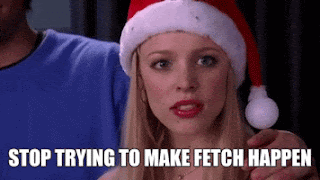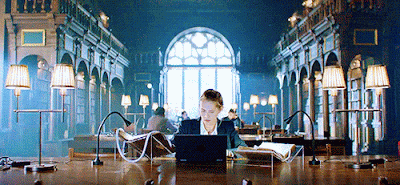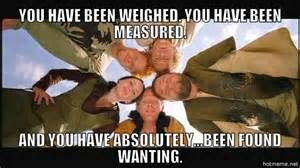Week ----
Today was the first time I grocery shopped without a panic attack.
Day -- and most of the people in the store had masks on. Almost all were paying attention to the bizarre chutes and ladders one way navigation that is shopping now. Miss something you need in an aisle and you're doubling back.
But at least there's food on the shelves. No toilet paper ever, but food.
It's weird to notice what is and isn't there.
I need hair ties- the elastic in all mine have given up the ghost.
But there aren't any.
But there's Draino, so I'm okay.
I feel like a pro by this point- mask, no gloves, only pick things up once, zip past people who aren't moving in the aisle, in and out.
This feels like just what we do now.
Still no reusable bags, take everything out, put away, wash hands.
Since the food seems to be here if different I cancel the meal delivery and feel a singular joy in filling my basket with vegetables for my salads.
The Stockboy who told me my first week here he had a dream about my tattoos is there and calls me Baby Girl and hopes I'm okay.
Because I'm only going out once a week it's an odd time lapse movie of what the outside world is doing now.
It's this constant change, not knowing what the rules are TODAY that makes me anxious, although I'm trying to adapt.
What is time?
Last week there were frozen blueberries but no toilet paper. Never any toilet paper.
Dad says HIS store had 6 packs of Charmin. I've never been jealous of toilet paper before.
It was the first week I wore a mask to shop. The checkout lady was rude, saying she couldn't hear me. I almost cried. I wore gloves, cotton ones I ordered, and felt stupid.
I am grateful I am able to swoop in and out, limiting my time.
The hipsters clogging the aisle while they pick up and put down EVERY. BOX. of fancy Triscuits makes me want to stab them.
There are now signs telling you which way to move. This way, not that. Most people aren't paying any attention to them. Those who are trying to follow the rules versus those who are not make for confused swimming in the aisles, I keep changing direction to avoid people.
I rush, I feel rushed.
It's not panic, but I feel like I'm doing everything wrong. Am I following the right rules? What are the rules? Which doctors do I listen to?
?
The week before there was tissue paper, not Kleenex, we're deep into the off brand supplies. But paper products give me hope.
The news said a month is what it would take for the supply lines to reset. It's fine. It'll be fine.
Older folks, disabled folks, now wearing masks.
Shelves are less empty but the shelves look wrong- the colors and packaging I'm used to has been replaced by the same product in different form. It all contributes to the surreal feeling of life now.
Cashiers are now behind plexi, wearing gloves. Stockboys in masks. The manager who looks like Gimli striding confidently down the aisles, maskless, but working that vest.
Do I need to wash every box when I get home? I left my reusable bags at home. A doctor in a video told me everything I was doing was wrong.
The duct tape has been replaced by circles. Very brand-ey.
Why is no one freaked out by the empty shelves? Like, everyone is fine with no toilet paper? Or do they just have a year's stash at home?
Dad drove an hour to drop off an off brand, 4 pack of toilet paper. And a 5 pack of Kleenex. I've ecstatic. He then turns around and heads home. No touching.
3
There is duct tape on the floor showing people where to stand in the store. No one is paying any attention.
I am hyper aware of everyone. Too close. Too close. People in line (TOO CLOSE) talking on phones, complaining about the ridiculousness of it all.
An old lady moves slowly down the aisle wearing a mask. Should *I* be wearing a mask? Should I be wearing gloves? Is six feet enough? How will I know?
The people wearing masks are getting looks from the ones NOT wearing masks.
Lots of still empty shelves. Food just NOT there. I only wander out of the house once a week to grab groceries and then go home so the changes seem severe and out of context.
Have the stores been resupplying several times a week and people are STILL emptying the shelves? Or are the shelves staying empty?
I move to meal delivery in plan to stretch time I have between grocery store visits, not take food from people who have no options.
2
Soap gone now.
In fact all the cleaning supplies seem to be gone. My brain wants to fill in the shelves- what sat there? Is there really a desperate need for Endust? I mean, I get the antibacterial soap, the bleach, but you really see a pressing need for the Swiffer?
I am panicked entering the store. I stop right inside the door, then realize I can't block it, move a few feet in and freeze again.
Canned foods mostly gone.
Rice gone.
Meat gone. Man stands at swinging door to back and demands woman in butcher coat to bring something from the back for him.
There is no back. But he now has his hands on his hips.
I get home and toss clothes in washer, get in a shower and scrub with Dr. Bronner's. Am I clean enough? Did I get it?
Dad visits, insists on going on for lunch. The Chinese food place is empty. He hugs me both hello and goodbye and it already feels weird because I know we're not supposed to.
1
I have a full blown panic attack in the store at the number of people and the number of empty shelves. The store is not beach-in-summer-busy but I feel claustophobic. There seem to be people everywhere and the lights are too bright but maybe it's just that there are ALL these empty shelves for the light to bounce off of.
No meat.
No frozen foods.
No toilet paper.
Shockingly, still plenty of soap on the shelf but no Clorox wipes.
The emptiness freaks me out. No one else seems freaked out, leading me to believe I'm overreacting.
I buy Dr. Bronner's so I feel clean.












